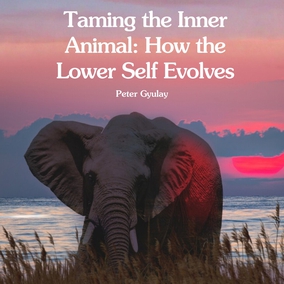The views expressed in our content reflect individual perspectives and do not represent the authoritative views of the Baha'i Faith.
When you join a religion, it resembles the process of committing to a long-term relationship with another person.
Like just about every relationship expert will tell you, how you are treated when the connection first begins to form is a good indication of how you will be treated after you immerse yourself in a deeper commitment. In the same way, how the adherents of a religion promote it to others sheds light on how they practice their faith in general.
The Baha’i Faith forbids applying undue pressure on anyone to become a Baha’i. This means Baha’is should scrupulously avoid trying to extract superficial expressions of religious conviction from those they know. Instead, the sacred writings of the Faith call on them to familiarize others with its teachings, aims, and ideals—and call on them to engage with these souls in conversations with the higher purpose of investigating the truth. In the previous article, I suggested that this approach to teaching one’s own religion expressed certain features of the Faith’s essential character—so let’s explore what that means in more depth.
On the 25th of April 1912, Abdu’l-Baha concluded a talk in Washington D.C. with a brief three-part introduction to the Baha’i teachings. He listed them as 1) the duty upon all to investigate reality, 2) the oneness of the world of humanity, and 3) that religion and science are in complete agreement. These principles illuminate core pillars of what it means to teach the Baha’i faith through individual actions. One implication that I think comes out of these reflections is that the process of attracting new people to the Baha’i Faith is supposed to be integral to realizing the vision of social and spiritual transformation at the Faith’s core. Let’s go through all three parts of his introduction.
1. The Duty upon All to Investigate Reality
The Baha’i teachings depict us fundamentally as beings in search of spiritual truth, and say that our souls each have the independent ability to perceive the spiritual truths in the world and recognize the station of a divine messenger and prophet for ourselves. Just because somebody insists they know the truth, doesn’t mean that the other person has to reflexively take their word for it. The Baha’i practice of teaching the Faith consists in treating every other person as someone completely capable of seeking out spiritual truth for themselves on an individual basis:
What does it mean to investigate reality? It means that man must forget all hearsay and examine truth himself, for he does not know whether statements he hears are in accordance with reality or not. Wherever he finds truth or reality, he must hold to it, forsaking, discarding all else; for outside of reality there is naught but superstition and imagination. For example, during the days of Jesus Christ the Jews were expecting the appearance of the Messiah, praying and beseeching God day and night that the Promised One might appear. Why did they reject Him when He did appear? … Because they did not investigate the truth or reality of Christ and were not able to recognize Him as the Messiah of God. – Abdu’l-Baha, The Promulgation of Universal Peace, p. 62.
2. The Oneness of the World of Humanity
In his talk in Washington, D.C., Abdu’l-Baha emphasized the primary, core Baha’i principle of the oneness of humanity when he said:
Every human creature is the servant of God. All have been created and reared by the power and favor of God; all have been blessed with the bounties of the same Sun of divine truth; all have quaffed from the fountain of the infinite mercy of God; and all in His estimation and love are equal as servants. He is beneficent and kind to all. Therefore, no one should glorify himself over another; no one should manifest pride or superiority toward another; no one should look upon another with scorn and contempt; and no one should deprive or oppress a fellow creature. All must be considered as submerged in the ocean of God’s mercy. We must associate with all humanity in gentleness and kindliness. We must love all with love of the heart. – Ibid., p. 63.
This means, to me, that no Baha’i can ever justify feeling superior to any other person—or feel like they have any exclusive access to the truth. That’s one of the reasons the Baha’i Faith has no clergy—because no individual Baha’i has access to superior knowledge or understanding.
3. Religion and Science are in Complete Agreement
The third teaching or principle of Baha’u’llah is that religion and science are in complete agreement. Every religion which is not in accordance with established science is superstition. Religion must be reasonable. If it does not square with reason, it is superstition and without foundation. It is like a mirage which deceives man by leading him to think it is a body of water. God has endowed man with reason that he may perceive what is true… – Ibid.
Not only does this mean that true religion doesn’t contradict well-proven theories from physics, chemistry, biology, etc.—it also means that religion is in harmony with the use of observation and reason. True religion, Baha’is believe, is something that should be understood with the mind as well as the heart and soul:
It is evident that within the human organism the intellect occupies the supreme station. Therefore, if religious belief, principle or creed is not in accordance with the intellect and the power of reason, it is surely superstition. – Ibid., p. 64.
Finally, Baha’is are not expected to adhere to illogical or absurd tenets, which implies that purely emotional appeals are an inappropriate way to teach one’s faith. The Baha’i teachings say that walking the path of faith, at its heart, is a sensible process.
















Comments
Sign in or create an account
Continue with Googleor